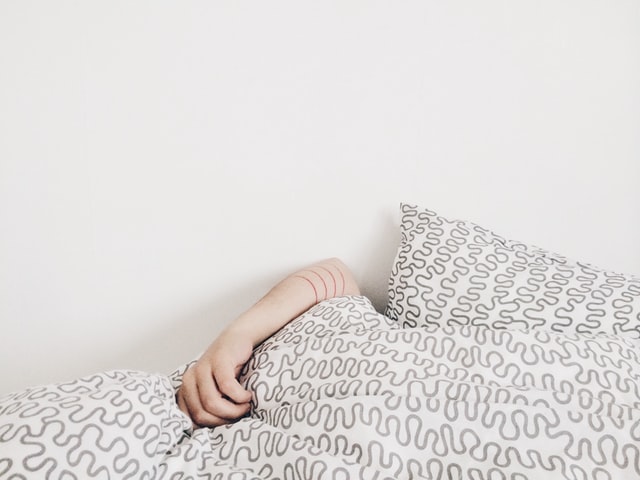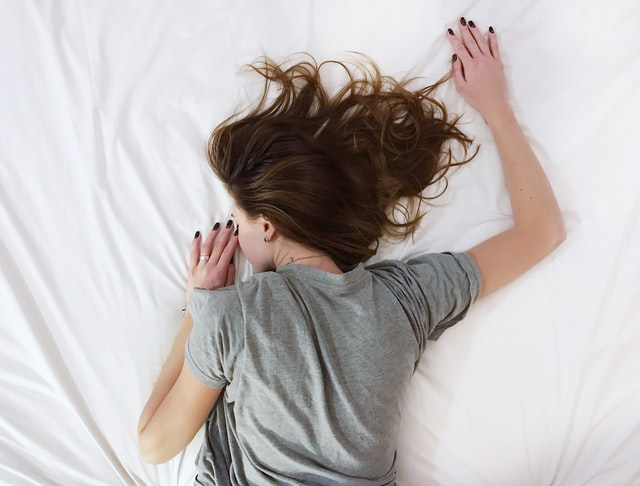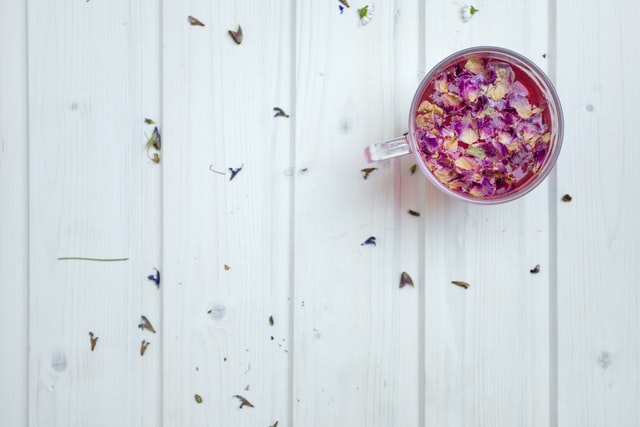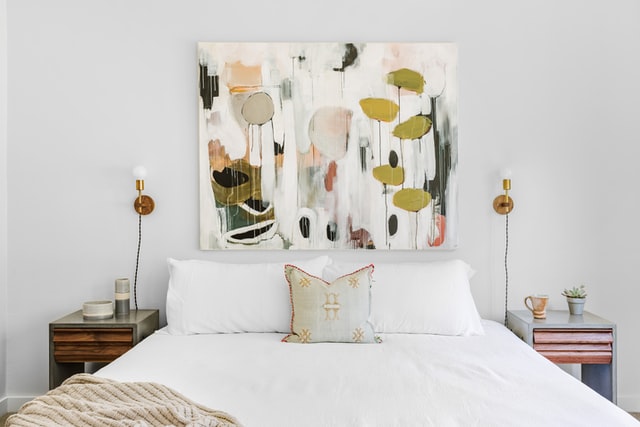Sleep is a universal need for all species and yet it can be experienced so differently by all of us:
- Some people are natural sleepers who conk out at the end of the day, spend eight hours (or more!) oblivious to the world, and wake refreshed in the morning excited to go to bed again that night.
- Some people dread sleep.
- Some people desperately want to sleep but their brains won’t shut off to allow them to do it.
- Some people scorn sleep as non-essential or boring or something that they’ll do after they die.
And yet, sleep we must…
Great sleepers probably won’t click on this article unless they have a loved one who struggles with sleep. Those who don’t care for sleep and consider it a waste of time, likewise, are probably reading different blogs. So this goes out to the people who want to sleep but can’t. I feel you. Between a brain that thinks that the middle of the night is the best time to solve the world’s problems, and two small children who teethe and get nightmares, I have more than my share of sleep envy. But that has also given me years to practice what I preach when it comes to creating restorative sleep!

WHY DO WE SLEEP?
Sooo…what’s the point of sleep? Why does every species sleep? What role does it serve? It turns out that just as we do more than one thing during our waking hours we also “do” an awful lot while we’re asleep too! The list of what we accomplish while unconscious is remarkable. Sleep (1):
- Improves our ability to learn
- Boost our creativity (ever go to bed with a problem and wake up with the answer?)
- Allows us to make good decisions (based on logic rather than impulse)
- Helps to regulate emotional health
- Strengthens our immune systems (there’s a reason we sleep more when we’re sick!)
- Supports our metabolism including appetite, energy, and blood sugar regulation
- Supports the microbiome
- Enhances cardiovascular health
Conversely, a chronic lack of sleep – whether by choice or through insomnia – has been implicated in such common modern maladies as (2):
- High blood pressure
- Diabetes
- Obesity
- Depression
- Heart attack
- Stroke

HOW TO IMPROVE SLEEP
Imagine life for our ancestors: the sun rose at roughly the same time every morning and set at roughly the same time every evening, and fuel for light and warmth was a limited commodity. Nights were either very dark during a new moon or just “quite dark” if the moon was full…but they were consistently dark. A daily routine with regular sleep and wake patterns was therefore reasonably easy to establish. The cues for sleep were built in to our environments. The first step in improving sleep for ourselves and our children, is to establish good sleep hygiene.

1. Bedrooms are for sleep (and intimacy).
Bedrooms are NOT for TVs, tablets, and mindless scrolling on phones (you can do that anywhere else in the home!). Just like Pavlov’s dog who learned that the ding of a bell meant food and ultimately would salivate at the sound of that bell, we need to send a clear signal to our brains when we go to bed that we intend to sleep. Watching TV or checking emails from the bed sends mixed messages to the brain about what is expected of it, not to mention the negative effect that blue light from screens has on sleep.

2. Make it dark.
Use blackout blinds, blackout curtains, and/or an eye mask to block as much light in your room as possible. Use black electrical tape to cover lights on any appliances you may have in your room (I have a HEPA air filter and white noise machine in my room) If you use a phone for your alarm then ensure that it is on Night Shift mode which counters the melatonin-interfering blue light that screens emit with a yellow-orange tone, and minimize phone use beyond setting the alarm and putting it on airplane mode before sleep. The better option would be an actual alarm clock in the bedroom with the phone elsewhere charging overnight…
3. Make it quiet…or helpfully noisy.
Some light sleepers find ear plugs to be a game changer for helping to turn their focus inwards. If the foam ones are too uncomfortable try silicone ear plugs or look into custom ear plugs. A white noise machine can also be helpful, particularly if you live in a noisy neighbourhood or have roommates or family on a different schedule than you.
4. Keep it cool.
The ambient temperature drops overnight, and so too does our body temperature. Excess heat, particularly humid heat, interferes with sleep cycles (3) so try to keep the bedroom cool and use appropriate bedding to stay snuggly warm without overheating.
5. Keep a regular routine.
We do this with infants and children all the time: bath, PJs, teeth, story, song, bedtime…and those cues help them to drift off when put to bed. But we often fail to “set the stage” for sleep as adults. Have dinner early enough for it to digest before bedtime. Read a book, take a bath, do some stretching (no vigorous exercise before bed please!), have a nice warm drink, journal, meditate, etc. and try to keep bedtime and wake times consistent even on days off. Your body LOVES routine!

6. Support sleep and relaxation as needed with herbal medicine
There are many, many herbs that can help with sleep but if you’re watching the news or a crime drama until late at night while eating a heavy meal, then quickly checking work emails one last time before finally closing your eyes and wondering why sleep is elusive then it’s best to start with the basics of sleep hygiene.

HERB Categories for sleep
Nervines
These are herbs that calm the nerves. They can be used in smaller doses during the day to ease tension, agitation, anxiety, and sometimes tense muscles if they are also anti-spasmodic. They can also be used in higher amounts before bed, or even during night-awakenings, to support falling asleep or falling back asleep. Nervine herbs include Ashwagandha (Withania somnifera), Passionflower (Passiflora incarnata), Holy Basil (Ocimum sanctum), Kava (Piper methysticum), Chamomile (Matricaria recutita), Skullcap (Scutellaria lateriflora), Valerian (Valeriana officianalis), and Lavender (Lavandula).
Nerve Tonics
Nerve tonics support the health and function of nervous tissue making them excellent for prevention of nervous exhaustion in cases of prolonged stress, or for treatment if nervous system fatigue has set in. They are generally used in conjunction with nervines and/or adaptogens but may be used in isolation if desired. Nerve tonics include Milky Oat Seed (Avena sativa), Lion’s Mane (Hericium erinaceus), and Skullcap (Scutellaria lateriflora).
Adaptogens
Just as the name suggests adaptogens are herbs that support our ability to adapt to new situations, be that a change in temperature or altitude, exercise, famine, or any stressful situation such as examinations or bereavement…or any sort of curve-ball that life throws at us! Adaptogens support the adrenal glands through the master glands in the brain called the hypothalamus and pituitary. The connection between them all is dubbed the Hypothalamic-Pituitary-Adrenal (or HPA) axis. Adaptogenic herbs are a broad class of body tonics that include Ashwagandha (Withania somnifera), Reishi (Ganoderma lucidum), Schisandra (Schisandra chinensis), Licorice (Glycyrrhiza glabra), Eleuthero (Eleutherococcus senticosus), and Ginsengs (Panax quinquefolium/ginseng). They are best used over longer stretches of time (weeks to months) and may be blended with nervines to help calm the nervous system while strengthening resilience.
Sedatives or Hypnotics
And finally we get to the heart of the sleeping matter with sedative herbs. Some of these are repeats from the nervine section but used at a higher dose to help induce sleep, and some of them are much stronger herbs that can be used for anxiety but at very low doses (think drops rather than millilitres). So in addition to the Ashwagandha, Kava, Skullcap, Valerian, and Passionflower that we saw above, more strongly sedative herbs include California poppy (Eschscholtzia californica), Wild lettuce (Lactuca virosa), and Jujube seeds (Ziziphus jujube) (6). Any of the herbs listed above may be used alone for sensitive people who want to assess their response to one plant at a time, or in combination form as they have a synergistic effect when used together. For sleep support I like a blend that includes one or more herbs from each category for a well rounded approach to calming the body and mind, while simultaneously strengthening it.

PRIORITIZE SLEEP
If you want to improve your athletic performance then you need to sleep. If you want to be more productive at work or at home then you need to sleep. If you want to be calmer, happier, and less emotionally reactive then you need to sleep. If you want to live longer with a healthier heart and slimmer waist-line then you need to sleep. No matter what your life goals are getting sufficient levels of quality sleep every night will help you to achieve them!
So the first step on the journey is to commit to sleep as an essential element to your mental and physical health, just as hydration, nutrition, and activity are. Through that commitment assess your evening routine and your waking routines to see what changes you can make to support your nightly rest from winding down earlier, to eating earlier, to including meditation or journaling into your day. If you need added support to shift your brainwaves towards sleep, or lower daytime anxiety, then look to some gentle herbal support to soothe, strengthen, tonify, and/or sedate your mind and body as needed. I often use Louise Hay’s affirmation for sleep to help quell an active brain. “I lovingly release the day, and slip into a peaceful sleep knowing that tomorrow will take care of itself.”
Sweet dreams…

References
- Walker, M. Why We Sleep: Unlocking the Power of Sleep and Dreams. Simon and Shuster, 2017.
- Institute of Medicine (US) Committee on Sleep Medicine and Research; Colten HR, Altevogt BM, editors. Sleep Disorders and Sleep Deprivation: An Unmet Public Health Problem. Washington (DC): National Academies Press (US); 2006. Available from: https://www.ncbi.nlm.nih.gov/books/NBK19960/doi: 10.17226/11617
- Okamoto-Mizuno K, Mizuno K. Effects of thermal environment on sleep and circadian rhythm. J Physiol Anthropol. 2012;31(1):14. Published 2012 May 31. doi:10.1186/1880-6805-31-14
- Hoffman, D. Medical Herbalism: The Science and Practice of Herbal Medicine. Healing Arts Press, Rochester, Vermont, 2003.
- Winston, D. Herbal Therapeutics: Specific Indications for Herbs and Herbal Formulas 8th Herbal Therapeutics Research Library, Broadway, NJ, 2003.
- Jiang JG, Huang XJ, Chen J, Lin QS. Comparison of the sedative and hypnotic effects of flavonoids, saponins, and polysaccharides extracted from Semen Ziziphus jujube. Nat Prod Res. 2007;21(4):310‐320. doi:10.1080/14786410701192827
- Hay, L. Heal Your Body. Hay House, Carson, California, 1988.
